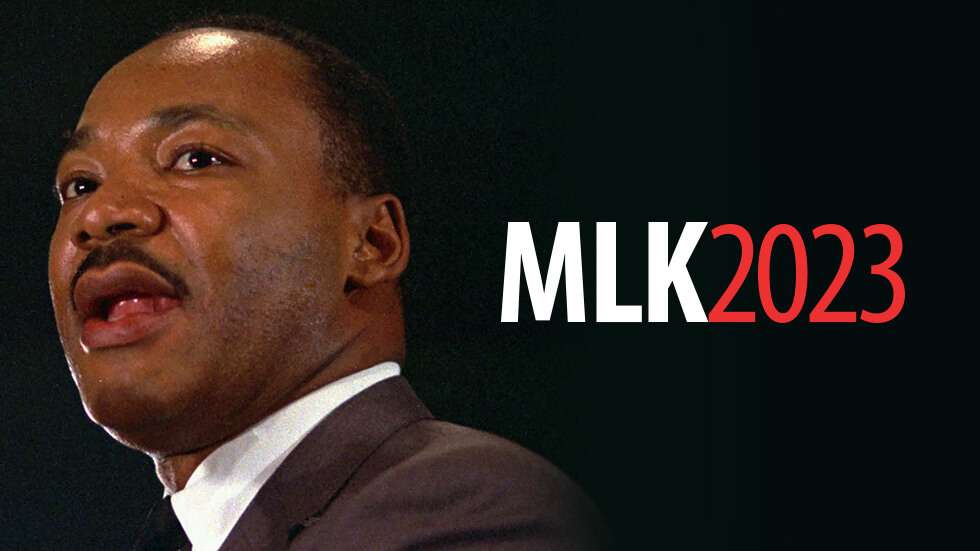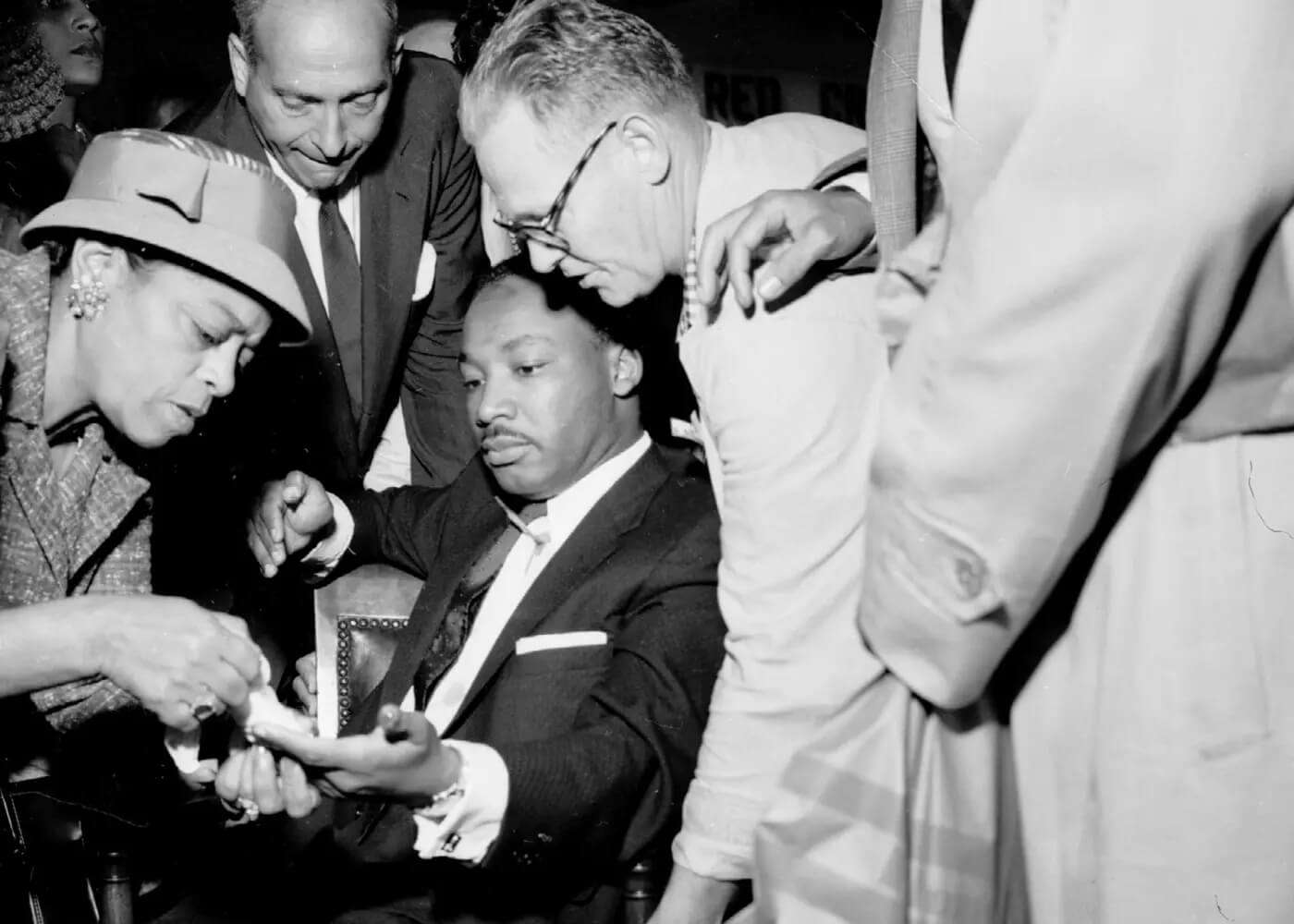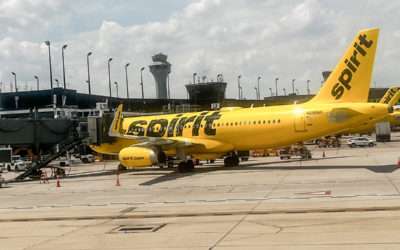
4 Things Most People Don’t Know About MLK
Today is the day Americans celebrate the life and legacy of Rev. Dr. Martin Luther King, Jr. There are many aspects of his life that everyone knows, such as his prominent role in the Civil Rights Movement of the ’60s, his work as a pastor and union organizer, and the near-constant harassment and conspiracy theories he had to endure. Yet, there are still many chapters of his biography that remain largely unknown. Here are five things most people still don’t know about the Human Rights icon.
Martin Luther King Jr.’s birth name was actually Michael King Jr.
Every year on the third Monday of January, America celebrates the life and legacy of Dr. Martin Luther King Jr., a champion of civil rights and a symbol of peace. However, very few people are aware that this historic leader was born under another name: Michael King Jr. Martin Luther only adopted his famous name after his father, a prominent Pastor in Atlanta, GA, changed both their names to Martin Luther in honor of Protestant reformist Martin Luther following an extended tour of Europe and Germany in 1934. While the exact reasons for the change remain a topic of debate, the elder King swiftly replaced “M.L.” or “Mike” King with “Martin Luther King, Sr.”
The younger King was more reticent about the name change. His original birth certificate was filed on January 15, 1929, when he was already five years old. He did not start referring to himself by “Martin,” in his letters until well into the 1950s, preferring instead to sign off with the initials “ML.” The first time he seems to have formally used the name Martin was in a July 18, 1952, letter to his then-girlfriend and future wife, Coretta. He ends the beautiful missive with “Eternally Yours, Martin.”
His name was formally changed when his birth certificate was updated with “Martin Luther” on July 23, 1957, when he was 28.

He was nearly assassinated a decade before his actual assassination
One of the stranger stories about King’s life happened on a cool September afternoon in the shoe section of a bustling Harlem department store when he was 29. King had become a national figure following the Atlanta bus Boycotts triggered by Rosa Parks’ refusal to sit at the back of a bus. King had written a book about the event called Stride Toward Freedom. While promoting the book, a 42-year-old black woman named Izola Ware Curry stepped forward and stabbed King in the center of his chest with a pen knife. She stabbed him with so much force that the blade broke off in his chest and remained there as the shocked crowd jumped to restrain her.
Photos from the attempt on his life are eery. In the most famous, King is shown calmly having a wound on his hand treated while the blade juts from his chest, a small circle of blood spreading under his otherwise clean white shirt. (Take another look at the photo above.)
Curry was arrested, and it was later determined that she was mentally unwell. She died in 2015 after spending the rest of her life struggling with paranoid schizophrenia.
His “I Have A Dream” speech was not originally planned.
The “I Have A Dream” speech delivered at the steps of the Lincoln Memorial in Washington, DC, is one of the most iconic speeches of all time. But interestingly enough, it was largely off-script; the words were mostly improvised. Before delivering the speech on August 28, 1963, in front of an estimated 250,000 people, King wrote a 20-page manuscript that his advisors had reviewed. However, throughout his speech, he made substantial changes – substituting facts with emotional appeals to rally civil rights supporters to action. The words “I have a dream” do not appear in his speech notes.
The “I have a dream” section was almost entirely improvised and was based on a sermon that his parishioners knew well. Towards the end of the remarks, a voice can be heard calling for him to “do, ‘I have a dream! Tell them about the dream, Martin!”
That voice belonged to Mahalia Jackson, a vocalist who had sang hymns to the crowd before King was scheduled to speak. King had often performed versions of what would later become the “I have a dream” speech at engagements around the South. But, he had not included it in his address at the Lincoln Memorial because he didn’t think he could fit it in. Hearing Jackson’s calls to him changed his mind, and King delivered remarks that would be recited for centuries.
He was arrested more than 30 times.
King was regularly denounced as a “criminal,” a “Communist,” and a “troublemaker.” And police at the time were not reluctant to arrest him for any and every accusation made against the human rights leader. Over his career, King was arrested after being accused of standing illegally outside a government building, lying under oath, driving 5 miles over the speed limit, and tax evasion, among many other accusations. Notably, King was also regularly acquitted of these allegations by all-white juries that prosecutors had hoped would hand down lengthy prison sentences.
Exasperated, in December 1959, the Governor of Georgia, Ernest Vandiver dropped all pretense and simply outlawed Dr. King altogether. Claiming that King’s presence anywhere in the state would disrupt the “good relations between the races,” and that “wherever M. L. King, Jr., has been there has followed in his wake a wave of crimes including stabbings, bombings, and inciting riots, barratry, destruction of property, and many others” he placed him under constant police surveillance.
While King certainly had powerful enemies but also friends in high places. Among them were John F Kennedy, Jr. and his brother, Robert Kennedy, who regularly made calls for his release from jail. Moreover, the arrests led to some of the most poignant writing in American history, as they allowed King to use his considerable skills to create such works as “Letters From Birmingham Jail.”
JetBlue Crewmembers Deserve More from Northeast Alliance
JetBlue Crewmembers Deserve More from Northeast Alliance Justice at JetBlue28 February 2022 Two-thirds of JetBlue’s operation is now tied up with American’s in the so-called “Northeast Alliance.” American and JetBlue now share revenue and coordinate schedules in New...
Machinists Union Contract Will Remain In Effect After Spirit / Frontier Merger
8 February 2022Machinists Union Contract Will Remain In Effect After Spirit / Frontier MergerAs you are aware, Spirit Airlines has entered into a merger agreement with Frontier Airlines. First and foremost, I want you to know that our newly-ratified contract with...
National Airlines Flight Attendants Vote Overwhelmingly to Join the Machinists Union
National Airlines InFlight Crewmembers Vote to Join Machinists & Aerospace UnionJustice at JetBlue23 January 2022National Airlines Flight Attendants are officially joining the largest and most powerful airline union in the world.The Flight Attendants sought out...
Machinists Union Advocacy: More Funding for More Jobs
[supsystic-social-sharing id='3']The Machinists Non Partisan Political League seeks to advance public policy that benefits airline and aerospace workers. To support the work of the MNPL, please consider recurring, automatic donations of any amount today. Click Here to...
Front Line Input “Crucial to the Success” of Contract Negotiations, says IAMAW District President, Mike Klemm
[supsystic-social-sharing id='3']Input and solidarity from front-line union members are "crucial to the success" of contract negotiations at United and Hawaiian Airlines, according to IAMAW District 141 President Mike Klemm. Klemm is helping to oversee ongoing...
MythBuster: Union Dues
[supsystic-social-sharing id='3']The National Mediation Board, an agency of the Federal Government, requires that at least 50% of employees within a job classification company-wide (i.e. AO or GO Crewmembers) show interest in joining a union by signing an...
Machinists Union from Capitol Hill: JetBlue Must Repay Workers
[supsystic-social-sharing id='3']The Machinists Non Partisan Political League seeks to advance public policy that benefits airline and aerospace workers. To support the work of the MNPL, please consider recurring, automatic donations of any amount today. Click Here to...
JetBlue Wrongly Cut Hours, Pay and Benefits
[supsystic-social-sharing id='4']JetBlue Wrongly Cut Hours, Pay, and Benefits Robin Hayes, CEO JetBlue Airways Inc.27-01 Queens Plaza NorthLong Island City, NY 11101 November 8, 2021 CEO Hayes, As expected, you did not respond to a letter sent to you on October...
Related News
United Negotiations Update
United Contract Negotiations Update26 November 2024 Dear Sisters and Brothers, Your IAM District 141 negotiating team and United Airlines management made significant progress in contract negotiations last week in Chicago, Illinois. We addressed seven separate...
Spirit Airlines Announces Plan to Restructure, Files Bankruptcy
This development does not mean Spirit Airlines is ceasing operations or reducing wages for our front-line Union Members. . Spirit Airlines Announces Plan to Restructure, Files Bankruptcy November 19, 2024 Sisters and Brothers, Yesterday, Spirit Airlines announced that...
Alaska Air and Hawaiian Airlines Bulletin
The IAM Districts 141 and 142 reached a Transition Agreement with Alaska Airlines and Hawaiian Airlines for the Alaska COPS and RSSA agreements, and the Hawaiian COPFS agreement, respectively October 31, 2024 Aloha Sisters and Brothers of Hawaiian and Alaska Airlines,...

4 Things Most People Don’t Know About MLK
Today is the day Americans celebrate the life and legacy of Rev. Dr. Martin Luther King, Jr. There are many aspects of his life that everyone knows, such as his prominent role in the Civil Rights Movement of the ’60s, his work as a pastor and union organizer, and the near-constant harassment and conspiracy theories he had to endure. Yet, there are still many chapters of his biography that remain largely unknown. Here are five things most people still don’t know about the Human Rights icon.
Martin Luther King Jr.’s birth name was actually Michael King Jr.
Every year on the third Monday of January, America celebrates the life and legacy of Dr. Martin Luther King Jr., a champion of civil rights and a symbol of peace. However, very few people are aware that this historic leader was born under another name: Michael King Jr. Martin Luther only adopted his famous name after his father, a prominent Pastor in Atlanta, GA, changed both their names to Martin Luther in honor of Protestant reformist Martin Luther following an extended tour of Europe and Germany in 1934. While the exact reasons for the change remain a topic of debate, the elder King swiftly replaced “M.L.” or “Mike” King with “Martin Luther King, Sr.”
The younger King was more reticent about the name change. His original birth certificate was filed on January 15, 1929, when he was already five years old. He did not start referring to himself by “Martin,” in his letters until well into the 1950s, preferring instead to sign off with the initials “ML.” The first time he seems to have formally used the name Martin was in a July 18, 1952, letter to his then-girlfriend and future wife, Coretta. He ends the beautiful missive with “Eternally Yours, Martin.”
His name was formally changed when his birth certificate was updated with “Martin Luther” on July 23, 1957, when he was 28.

He was nearly assassinated a decade before his actual assassination
One of the stranger stories about King’s life happened on a cool September afternoon in the shoe section of a bustling Harlem department store when he was 29. King had become a national figure following the Atlanta bus Boycotts triggered by Rosa Parks’ refusal to sit at the back of a bus. King had written a book about the event called Stride Toward Freedom. While promoting the book, a 42-year-old black woman named Izola Ware Curry stepped forward and stabbed King in the center of his chest with a pen knife. She stabbed him with so much force that the blade broke off in his chest and remained there as the shocked crowd jumped to restrain her.
Photos from the attempt on his life are eery. In the most famous, King is shown calmly having a wound on his hand treated while the blade juts from his chest, a small circle of blood spreading under his otherwise clean white shirt. (Take another look at the photo above.)
Curry was arrested, and it was later determined that she was mentally unwell. She died in 2015 after spending the rest of her life struggling with paranoid schizophrenia.
His “I Have A Dream” speech was not originally planned.
The “I Have A Dream” speech delivered at the steps of the Lincoln Memorial in Washington, DC, is one of the most iconic speeches of all time. But interestingly enough, it was largely off-script; the words were mostly improvised. Before delivering the speech on August 28, 1963, in front of an estimated 250,000 people, King wrote a 20-page manuscript that his advisors had reviewed. However, throughout his speech, he made substantial changes – substituting facts with emotional appeals to rally civil rights supporters to action. The words “I have a dream” do not appear in his speech notes.
The “I have a dream” section was almost entirely improvised and was based on a sermon that his parishioners knew well. Towards the end of the remarks, a voice can be heard calling for him to “do, ‘I have a dream! Tell them about the dream, Martin!”
That voice belonged to Mahalia Jackson, a vocalist who had sang hymns to the crowd before King was scheduled to speak. King had often performed versions of what would later become the “I have a dream” speech at engagements around the South. But, he had not included it in his address at the Lincoln Memorial because he didn’t think he could fit it in. Hearing Jackson’s calls to him changed his mind, and King delivered remarks that would be recited for centuries.
He was arrested more than 30 times.
King was regularly denounced as a “criminal,” a “Communist,” and a “troublemaker.” And police at the time were not reluctant to arrest him for any and every accusation made against the human rights leader. Over his career, King was arrested after being accused of standing illegally outside a government building, lying under oath, driving 5 miles over the speed limit, and tax evasion, among many other accusations. Notably, King was also regularly acquitted of these allegations by all-white juries that prosecutors had hoped would hand down lengthy prison sentences.
Exasperated, in December 1959, the Governor of Georgia, Ernest Vandiver dropped all pretense and simply outlawed Dr. King altogether. Claiming that King’s presence anywhere in the state would disrupt the “good relations between the races,” and that “wherever M. L. King, Jr., has been there has followed in his wake a wave of crimes including stabbings, bombings, and inciting riots, barratry, destruction of property, and many others” he placed him under constant police surveillance.
While King certainly had powerful enemies but also friends in high places. Among them were John F Kennedy, Jr. and his brother, Robert Kennedy, who regularly made calls for his release from jail. Moreover, the arrests led to some of the most poignant writing in American history, as they allowed King to use his considerable skills to create such works as “Letters From Birmingham Jail.”
Related News
United Negotiations Update
Your IAM District 141...
United Negotiations Update
United Contract Negotiations...
Spirit Airlines Announces Plan to Restructure, Files Bankruptcy
This development does not...






